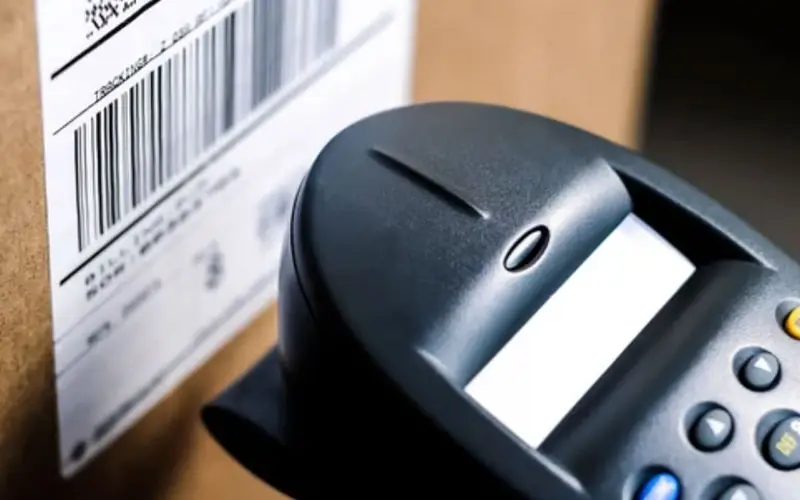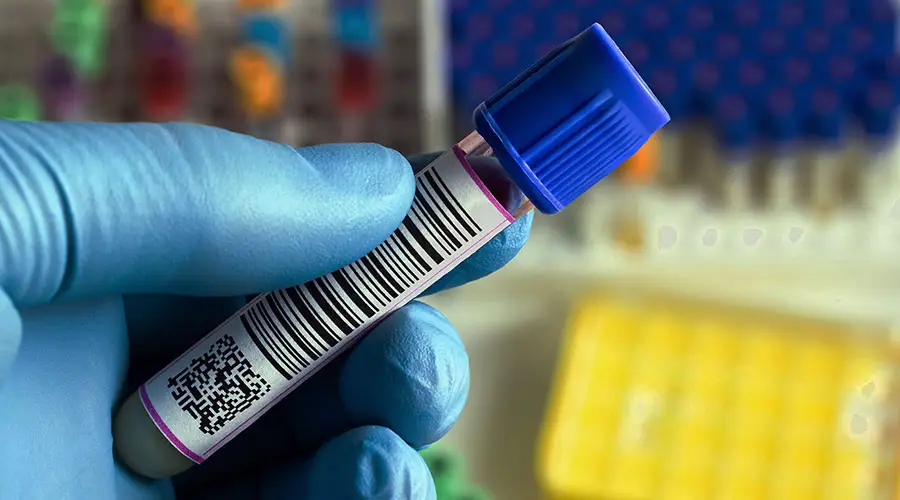
GS1 Traceability Standards are a set of guidelines for tracking and tracing the movement of goods and products through various stages of the supply chain. They also have to do with safety, interoperability, and transparency. They apply to a variety of sectors, such as foodservice, healthcare, and transportation.
What Is GS1 Barcodes?
GS1 (Global System for Mobile Commerce) is a non-profit, international organization that develops and implements global standards for business communication and supply chains. It is a member-driven organization that has over one million companies, government agencies and industry organizations around the world as members.
It is a system based on assigning globally unique identification numbers to products and services. These numbers are used to ensure accurate tracking and tracing of products. The organization also has a variety of solutions that can help companies do business more effectively.
GS1 develops a variety of EDI standards that allow businesses to easily and accurately transmit business data through paper and electronic means. In addition, GS1 also works with governments and technology providers to develop a number of services and solutions to meet the needs of companies throughout the world.
GS1 is an important player in the global business world. It works with the government and industry to develop standards that are used in more than 6 billion transactions every day.
Interoperability
GS1 traceability standards are a set of technologies that help companies understand and document how their products move through the supply chain. These standards are based on radio frequency identification (RFID) solutions, which enable data to be captured and transmitted along a supply chain. They help retailers, distributors, and wholesalers understand how their products move through the supply chain and connect trading partners.
GS1 traceability standards can help companies understand where their products are in the supply chain, how their products are distributed, and who has control over that information. They also help with food safety and supply chain security. They provide companies with an easy way to communicate information about their products to trading partners.
GS1 traceability systems are a great way to build trust and confidence in your food supply chain. They help to make sure that all information is consistent, and that it meets consumer needs. GS1 standards have been used by more than one million companies worldwide. They are the most widely used supply chain standards system in the world.
Traceability is becoming more important in many sectors. With the growing demand for supply chain digitization, and the regulatory requirements associated with it, companies are looking for solutions that can help them meet these demands. GS1 traceability standards provide a common language to exchange information across industry sectors and trading partners.
GS1 is a neutral, non-profit organization that develops a global system of standards. They are also a leader in facilitating collaborations among industry organizations and other industry associations.
GS1 is also a leading provider of data synchronization and identification solutions. They help nearly 300,000 businesses improve their supply chains, lower costs, and respond to changing markets.
Transparency
GS1 traceability standards are a great way to improve the transparency of supply chains. These standards allow organizations to automate transactions and track data to help companies meet customer demands. They also allow companies to connect with consumers and retailers.
GS1 standards allow organizations to share information with all parties involved. They also create better visibility into the supply chain and ensure the safety of information. In addition, GS1 standards can help organizations improve the resilience of their supply chain and create more efficient data exchange.
GS1 traceability standards can improve the transparency of food supply chains. This can help organizations meet consumer demands while ensuring the safety of their products. It can also save time for product recalls. These standards allow organizations to quickly identify and remove products that may be contaminated.
These standards also create a more visible supply chain by providing greater visibility to trading partners and consumers. This helps companies address inefficiencies and disruptions. It also allows companies to communicate in a standard fashion with consumers and suppliers.
GS1 traceability standards also improve sustainability by helping brands communicate key performance indicators. This includes tracking and measuring ingredients. For sustainable brands, traceability is an important consideration. It can also help to build consumer trust.
GS1 traceability standards also enable organizations to automate transactions and track data to make them more efficient. This helps organizations meet consumer demands while ensuring the safety and security of their information. It can also help companies connect with consumers and retailers. These standards also allow organizations to improve the resilience of their supply chain and create better data exchange.
GS1 traceability is not the only way to improve transparency in supply chains. Other industry standards such as Universal Product Codes are also important.
Safety
GS1 Traceability standards provide a global framework to identify and monitor critical data exchanges across the entire food supply chain. These standards help trading partners work collaboratively by sharing information. These systems also provide full visibility of the product journey. They are also technology-neutral, so that they can be implemented using existing technology.
GS1 traceability standards have helped millions of companies improve their product safety, efficiency and visibility. This technology is based on radio frequency identification (RFID) solutions, which allow trading partners to scan barcodes from stop to stop. This allows them to collect, store, process and share information.
GS1 is the world’s most widely used supply chain standards system, used by businesses in over 100 countries. GS1 members include grocery retailers, food manufacturers, pharmaceutical companies, NHS Trusts and other organizations. These standards are designed to protect consumers and the environment.
GS1’s mission is to create a global standard for information sharing and product tracking, based on standards that protect health. It is a neutral, not-for-profit organization. Its membership includes leading retailers, such as Sainsbury’s and Morrisons, as well as health and wellness providers, such as the NHS. The standards are developed by technical professionals from nearly 60 countries. They are built on the GS1 Global Standards Management Process, which uses a common language to ensure clarity of communication and improve efficiency.
GS1 traceability standards are used across all industry sectors. This includes the food industry, where companies in the foodservice, retail, wholesale and manufacturing sectors collaborate to improve food safety and visibility.
For example, the Foodservice GS1 US Standards Initiative has worked with retailers, distributors, manufacturers, and health and wellness providers to improve the speed and accuracy of information exchanged across the supply chain. This collaboration is designed to provide the best possible traceability solution for the food industry.
Foodservice
GS1 Standards can provide greater visibility into your food service supply chain and help to improve product information, efficiency, and traceability. They form a foundation for clearer communication and help to build consumer confidence.
Food service operators are looking to improve their product information and reduce waste in their supply chains. Using GS1 standards can help them to improve their supply chain visibility, reducing operational disruptions at restaurants, and reducing costs.
More than 130 foodservice industry stakeholders are working together to address these challenges. These organizations include distributors, manufacturers, suppliers, operators, and retailers. Each group has a different role in the foodservice supply chain. These organizations are working together to create a foundation for improved food safety and increased efficiency. They will work together to explore how GS1 Standards can be used to implement real-world product tracing.
The Foodservice GS1 US Standards Initiative encourages food service industry members to adopt global standards and use open standards to drive traceability and improve product information. Members will work together to support emerging e-commerce needs and drive best practices for data quality. They will also investigate industry-specific demands for GS1 Standards implementation.
The food industry is adopting GS1-128 carton-level barcodes for fresh foods. These barcodes are used to encode product information, such as batch/lot numbers and encoding dates. This helps to remove products from recalled lots. It also improves the rotation of products by encoding their date.
GS1 US is working with industry partners to develop EPCIS, or Extended Product and Company Information, a data sharing standard. They will work with four companies to implement EPCIS and evaluate the data requirements for real-world product tracing. The Food Safety Modernization Act (FSMA) requires a standards-based system for product information. It is expected to be finalized in 2023.

Healthcare
GS1 traceability standards offer a robust framework for healthcare supply chain management. They are designed to track important data exchanges throughout the supply chain and provide full visibility of the journey of a product. They also offer a means of verifying product authenticity and improving patient safety. These traceability solutions can help to ensure the safety of patient’s medical equipment and pharmaceuticals, while increasing the speed and efficiency of supply chains.
GS1 traceability standards have been proven to improve efficiency, increase patient safety, and improve the quality of care delivered in hospitals and clinics. They also help to create a common foundation for business by capturing and sharing vital information about locations and products, including their identity and physical characteristics. These standards also facilitate system-wide interoperability.
Traceability standards can help to improve inventory management and supply chain efficiency, while also increasing patient safety and protecting company investments. These standards can be implemented with existing technology and enable businesses to act as one digitally connected supply chain. They also help to align data between trading partners. This makes them the perfect solution for targeted recalls and other supply chain challenges.
The GS1 Healthcare Standard is designed to provide a foundational framework for all countries, ensuring that all users adhere to the same standards. This is important, especially since healthcare supply chains cross borders, often with the need to verify items’ origins. In addition, the standard will be beneficial to manufacturers and medical device companies, since it supports compliance with UDI requirements.
GS1 traceability standards are also a great way to increase efficiency in the Healthcare supply chain, while also reducing costs. They help to reduce supply chain errors and ensure the safety of products, while also providing the necessary visibility to help trading partners work more collaboratively.















